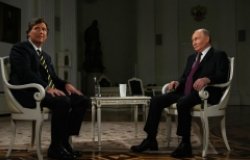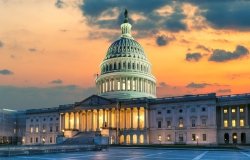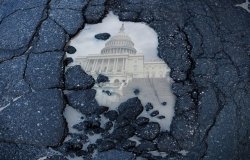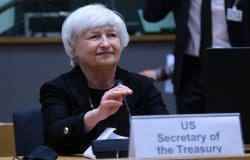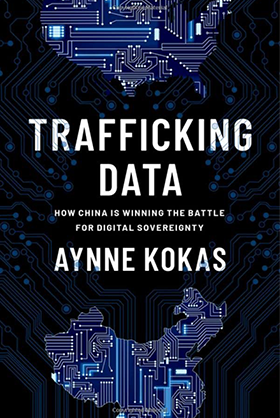Abe Looks to Redefine U.S.-Japan Ties
Today, President Obama meets with Japan’s new Prime Minister Shinzo Abe for the first time. Given the growing tensions in the Asia-Pacific region from the East Asia Sea territorial disputes to the North Korea conundrum, it is in the United States’ interest for the two leaders to develop strong personal ties and build a partnership that will confront the new realities of East Asia, writes Shihoko Goto in this op-ed.
After seven prime ministers in almost as many years, Japan looks like it may have a leader with more staying power. That alone should be enough motivation for President Obama to be fully invested in his meeting on February 22 with Japanese Prime Minister Shinzo Abe. However, with the growing tensions in the Asia-Pacific region – from the East China Sea territorial disputes to the North Korea conundrum – it will be in the United States’ best interests to nurture strong personal ties and build a partnership capable of meeting emerging challenges.
As the United States looks to rebalance its military capabilities towards Asia while grappling with ongoing uncertainties about its longer-term defense budget, Japan has increased its defense budget for the first time in 11 years. Granted, the 0.8 percent increase to $52 billion, with a 1.9 percent rise in the Coast Guard budget, is more symbolic than significant. Yet, the nominal increase signals recognition that Japan must step up efforts to build up its defense capabilities in light of the growing threats from neighboring countries. That, in turn, would dovetail with the U.S. pivot to the Asia-Pacific region as it looks to solidify existing alliances not just with Japan, but also with South Korea, Australia and Southeast Asia.
Following North Korea’s third nuclear test, Obama and Abe agreed that the United States and Japan need to work closely to ensure a new, tougher U.N. resolution for further sanctions against Pyongyang. However, there are limits to the effectiveness of pursuing further sanctions against an already isolated regime. The real challenge for the prime minister and the president will be to see whether they will be able to provide a framework aside from the United Nations to tackle the North Korean threat.
For a start, Abe and Obama must demonstrate deft diplomatic skills as they seek China’s backing in helping preempt further acts of aggression from Kim Jong-un’s regime. But securing such backing will require great sensitivity from both Japan and the United States given the continued tensions in the East China Sea over the Senkaku/Diaoyu Islands. While Washington has made clear that the United States would ultimately side with Japan in the event of Chinese aggression, Obama’s envoys have also made clear their expectations for some kind of détente. Indeed, departing Assistant Secretary of State for East Asian Affairs Kurt Campbell insisted during his latest trip to the region that “cooler heads” must prevail on both sides to bring about a peaceful solution.
Certainly, some fear the U.S.-Japan alliance could trigger a chain reaction in the region. A definitive U.S. entry into the political morass of the East China Sea could push China to take military action, which in turn could force other countries in the region to take sides. All this has troubling echoes of 1914 Europe.
All this said, it still seems unlikely that Japan and China will come to blows. But it is possible Abe may highlight the dispute as a way of exerting pressure on the U.S. in the row over the relocation of a U.S. military base in Okinawa. The base issue has dragged on in no small part because of the revolving door that has been the Japanese leadership, and Abe may well be tempted to leverage his own personal popularity following a dramatic election win last year to press for a resolution to the issue. Certainly, it will be easier to prepare for contingencies once the issue is concluded.
With his public support in one poll hitting almost 70 percent, Abe looks well-placed to help develop a longer-term foreign policy that takes into account the emerging realities of a changing Asia. Yet recent history has demonstrated how quickly things can change – Abe himself resigned from office in September 2007, after only a year in office, over health concerns and following a defeat in Japan’s upper house of parliament poll.
It is down to Abe to prove that he has a global vision that can stand the test of time.
About the Author

Shihoko Goto
Shihoko Goto is the director the Indo-Pacific Program at the Wilson Center. Her research focuses on the economics and politics of Japan, Taiwan, and South Korea, as well as US policy in Northeast Asia. A seasoned journalist and analyst, she has reported from Tokyo and Washington for Dow Jones and UPI on the global economy, international trade, and Asian markets. A columnist for The Diplomat magazine and contributing editor to The Globalist, she was previously a donor country relations officer for the World Bank and has been awarded fellowships from the East-West Center and the Knight Foundation, among others.
Read More
Indo-Pacific Program
The Indo-Pacific Program promotes policy debate and intellectual discussions on US interests in the Asia-Pacific as well as political, economic, security, and social issues relating to the world’s most populous and economically dynamic region. Read more
